Week in Freethought History (August 12-18)
Here’s your Week in Freethought History: This is more than just a calendar of events or mini-biographies – it’s a reminder that, no matter how isolated and alone we may feel at times, we as freethinkers are neither unique nor alone in the world.
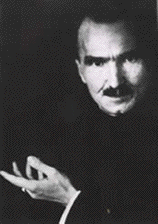 Last Sunday, August 12, but in 1988, Martin Scorsese’s film, The Last Temptation of Christ, was released in the United States. Even before it opened, the film had inspired controversy. Based on the 1955 novel of the same name by the Greek Orthodox writer, Nikos Kazantzakis (who also wrote Zorba the Greek), which almost got the author excommunicated, the novel was placed on the Roman Catholic Index of Prohibited Books, and Protestant fundamentalist groups in the US tried to have it banned from libraries – which of course made it a bestseller. The story of The Last Temptation of Christ posed a what-if question: what if we assume Jesus was a man becoming a god, not just a god from the start? Christian Fundamentalists, of course, rejected it for deviation from scripture, calling it “an intentional attack on Christianity.” Mainstream clerics looked deeper into the movie and found it subversive of Christian values: because The Last Temptation of Christ is nakedly Pantheistic: “there is no final distinction between good and evil, between God and man, between matter and spirit…” – which seem good enough reasons to recommend the film.
Last Sunday, August 12, but in 1988, Martin Scorsese’s film, The Last Temptation of Christ, was released in the United States. Even before it opened, the film had inspired controversy. Based on the 1955 novel of the same name by the Greek Orthodox writer, Nikos Kazantzakis (who also wrote Zorba the Greek), which almost got the author excommunicated, the novel was placed on the Roman Catholic Index of Prohibited Books, and Protestant fundamentalist groups in the US tried to have it banned from libraries – which of course made it a bestseller. The story of The Last Temptation of Christ posed a what-if question: what if we assume Jesus was a man becoming a god, not just a god from the start? Christian Fundamentalists, of course, rejected it for deviation from scripture, calling it “an intentional attack on Christianity.” Mainstream clerics looked deeper into the movie and found it subversive of Christian values: because The Last Temptation of Christ is nakedly Pantheistic: “there is no final distinction between good and evil, between God and man, between matter and spirit…” – which seem good enough reasons to recommend the film.
 Also last Sunday, August 12, but in 1930, Hungarian-American multi-billionaire, financier and philanthropist George Soros was born. Repeatedly demonized by TV personality Glenn Beck and perennial American presidential candidate Lyndon LaRouche because he supports progressive causes, Soros is chairman of Soros Fund Management and, between 1979 and 2011, gave away over $8 billion to human rights, public health, and education causes. He was instrumental in the peaceful transition from communism to capitalism in Hungary and contributed Europe's largest higher education endowment to Central European University in Budapest. Soros is also the chairman of the Open Society Institute, named after the book The Open Society and Its Enemies by his former teacher, Karl Popper. In a December 20, 1998, profile on the CBS-TV news magazine “60 Minutes,” Soros was asked by Steve Kroft if he is a religious man and if he believes in God. To both questions George Soros answered an unequivocal “No.”
Also last Sunday, August 12, but in 1930, Hungarian-American multi-billionaire, financier and philanthropist George Soros was born. Repeatedly demonized by TV personality Glenn Beck and perennial American presidential candidate Lyndon LaRouche because he supports progressive causes, Soros is chairman of Soros Fund Management and, between 1979 and 2011, gave away over $8 billion to human rights, public health, and education causes. He was instrumental in the peaceful transition from communism to capitalism in Hungary and contributed Europe's largest higher education endowment to Central European University in Budapest. Soros is also the chairman of the Open Society Institute, named after the book The Open Society and Its Enemies by his former teacher, Karl Popper. In a December 20, 1998, profile on the CBS-TV news magazine “60 Minutes,” Soros was asked by Steve Kroft if he is a religious man and if he believes in God. To both questions George Soros answered an unequivocal “No.”
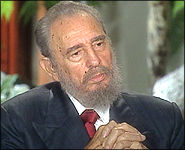 Last Monday, August 13, but in 1926, Cuban revolutionist and President-for-life Fidel Castro was born. Castro has outlasted 10 U.S. presidents. Although the Catholic Church has excommunicated him, Castro never repudiated the Church. Human Rights Watch claims Cuba has a poor record on religious freedom: the Catholic church lacks almost all access to the media, endures strict limits on the numbers of its clergy, and is barred from operating schools. But Cuba’s constitution guarantees the freedom to follow any God, or no God. In an interview published in 1985, Castro claimed, “No churches in Cuba were ever closed down – none of them. … [The church] was a rancid aristocracy… It is not with religion that there were problems, but with the religious institutions.”
Last Monday, August 13, but in 1926, Cuban revolutionist and President-for-life Fidel Castro was born. Castro has outlasted 10 U.S. presidents. Although the Catholic Church has excommunicated him, Castro never repudiated the Church. Human Rights Watch claims Cuba has a poor record on religious freedom: the Catholic church lacks almost all access to the media, endures strict limits on the numbers of its clergy, and is barred from operating schools. But Cuba’s constitution guarantees the freedom to follow any God, or no God. In an interview published in 1985, Castro claimed, “No churches in Cuba were ever closed down – none of them. … [The church] was a rancid aristocracy… It is not with religion that there were problems, but with the religious institutions.”
 Last Tuesday, August 14, but in 1925, U.S. journalist, humorist and biographer Russell Baker was born. Baker writes in Growing Up, that he lost his faith in God following his father’s death: “After that I never cried with any real conviction, nor expected much of anyone’s God except indifference.”
Last Tuesday, August 14, but in 1925, U.S. journalist, humorist and biographer Russell Baker was born. Baker writes in Growing Up, that he lost his faith in God following his father’s death: “After that I never cried with any real conviction, nor expected much of anyone’s God except indifference.”
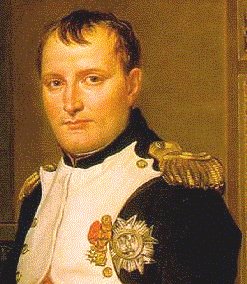 Last Wednesday, August 15, but in 1769, French military leader Napoleon Bonaparte, was born. Based on conversations at St. Helena, where Napoleon was exiled during his last six years, it seems the exiled Emperor became skeptical in his later years: Napoleon did not believe in the divinity of Christ, or in a future life, and doubted the spirituality of the mind. Although the Catholic Encyclopedia gleefully reports that Napoleon asked for a priest at his end, what they do not report is the excuse he gave. It was, as Napoleon said, because “there is so much that one does not know.” From the Catholic point of view, this rationale is agnostic.
Last Wednesday, August 15, but in 1769, French military leader Napoleon Bonaparte, was born. Based on conversations at St. Helena, where Napoleon was exiled during his last six years, it seems the exiled Emperor became skeptical in his later years: Napoleon did not believe in the divinity of Christ, or in a future life, and doubted the spirituality of the mind. Although the Catholic Encyclopedia gleefully reports that Napoleon asked for a priest at his end, what they do not report is the excuse he gave. It was, as Napoleon said, because “there is so much that one does not know.” From the Catholic point of view, this rationale is agnostic.
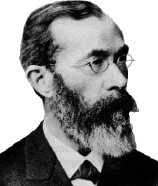 Last Thursday, August 16, but in 1832, German psychologist Wilhelm Max Wundt was born. Wundt is often referred to as the “Founder of Modern Psychology.” Wundt’s innovation was to divorce psychology from superstition. He was a freethinker in religion. Wilhelm Wundt rejected any belief in personal immortality and accepted God only as “a divine world-power.”
Last Thursday, August 16, but in 1832, German psychologist Wilhelm Max Wundt was born. Wundt is often referred to as the “Founder of Modern Psychology.” Wundt’s innovation was to divorce psychology from superstition. He was a freethinker in religion. Wilhelm Wundt rejected any belief in personal immortality and accepted God only as “a divine world-power.”
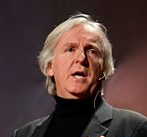 Also last Thursday, but in 1954, Canadian film director James Cameron was born. Director of The Terminator (1984), Aliens (1986), The Abyss (1989), Terminator 2: Judgment Day (1991), True Lies (1994), Titanic (1997), and Avatar (2009), Cameron has been nominated for six Academy Awards overall and won three for Titanic. Not only is Cameron an unabashed atheist, but he says in the 2009 biography The Futurist by Rebecca Meegan, “I've sworn off agnosticism, which I now call cowardly atheism.” Cameron continues, “I've come to the position that in the complete absence of any supporting data whatsoever for the persistence of the individual in some spiritual form, it is necessary to operate under the provisional conclusion that there is no afterlife and then be ready to amend that if I find out otherwise.”
Also last Thursday, but in 1954, Canadian film director James Cameron was born. Director of The Terminator (1984), Aliens (1986), The Abyss (1989), Terminator 2: Judgment Day (1991), True Lies (1994), Titanic (1997), and Avatar (2009), Cameron has been nominated for six Academy Awards overall and won three for Titanic. Not only is Cameron an unabashed atheist, but he says in the 2009 biography The Futurist by Rebecca Meegan, “I've sworn off agnosticism, which I now call cowardly atheism.” Cameron continues, “I've come to the position that in the complete absence of any supporting data whatsoever for the persistence of the individual in some spiritual form, it is necessary to operate under the provisional conclusion that there is no afterlife and then be ready to amend that if I find out otherwise.”
 Yesterday, August 17, but in 1998, then-President Bill Clinton made his famous Map Room speech – a confession that he did indeed have inappropriate sexual relations with White House intern Monica Lewinski. Although not a Roman Catholic, President Clinton’s simultaneously regretful and defiant “confession” would technically pass muster in a Catholic confessional. Confession can be inferred from the Bible (I John 1:9). Although confession predates Christianity, the Catholic Church took the concept and ran with it. By the sixth century, the Catholic Church was publishing lists of sins to be confessed, called Penitentials, that contain such gross sexual peccadilloes that perhaps only Playboy or Hustler could translate and publish them today! But if confession is good for the soul, there is no evidence that confession has any effect on morals. Since priests are allowed to hear confessions in any setting, not just the traditional confessional box, they have (and take) the opportunity to trade absolution for heterosexual (or homosexual or child-sexual) liaisons. Unlike former President Clinton, before his Map Room confession, for Freethinkers there is quite a bit of incentive for not doing bad things in the first place!
Yesterday, August 17, but in 1998, then-President Bill Clinton made his famous Map Room speech – a confession that he did indeed have inappropriate sexual relations with White House intern Monica Lewinski. Although not a Roman Catholic, President Clinton’s simultaneously regretful and defiant “confession” would technically pass muster in a Catholic confessional. Confession can be inferred from the Bible (I John 1:9). Although confession predates Christianity, the Catholic Church took the concept and ran with it. By the sixth century, the Catholic Church was publishing lists of sins to be confessed, called Penitentials, that contain such gross sexual peccadilloes that perhaps only Playboy or Hustler could translate and publish them today! But if confession is good for the soul, there is no evidence that confession has any effect on morals. Since priests are allowed to hear confessions in any setting, not just the traditional confessional box, they have (and take) the opportunity to trade absolution for heterosexual (or homosexual or child-sexual) liaisons. Unlike former President Clinton, before his Map Room confession, for Freethinkers there is quite a bit of incentive for not doing bad things in the first place!
 Today, August 18, but in 1868, a total solar eclipse, called the King of Siam’s Eclipse, was seen during the reign of the very same King Mongkut who figures in the book by Anna Leonowens, describing her adventures teaching at the court in Siam – which subsequently became the 1951 Rodgers and Hammerstein musical The King and I, winner of a 1952 Tony award. King Mongkut predicted the eclipse and calculated the best place from which to view it. On this date, the King and his guests waited impatiently under overcast skies. Just as the eclipse was starting, the clouds parted and all eyes were on the skies and, for six minutes and 47 seconds, the sun was obscured. The locals set off fireworks and banged drums and gongs to frighten off the eclipse demon Rahu. The eclipse passed without incident – except that nearly everyone was bitten by mosquitoes, and many of them developed malaria. King Mongkut died of the disease on his 64th birthday. If this was divine disfavor, God’s aim was askew: the kingdom of Siam survived to become the modern nation of Thailand!
Today, August 18, but in 1868, a total solar eclipse, called the King of Siam’s Eclipse, was seen during the reign of the very same King Mongkut who figures in the book by Anna Leonowens, describing her adventures teaching at the court in Siam – which subsequently became the 1951 Rodgers and Hammerstein musical The King and I, winner of a 1952 Tony award. King Mongkut predicted the eclipse and calculated the best place from which to view it. On this date, the King and his guests waited impatiently under overcast skies. Just as the eclipse was starting, the clouds parted and all eyes were on the skies and, for six minutes and 47 seconds, the sun was obscured. The locals set off fireworks and banged drums and gongs to frighten off the eclipse demon Rahu. The eclipse passed without incident – except that nearly everyone was bitten by mosquitoes, and many of them developed malaria. King Mongkut died of the disease on his 64th birthday. If this was divine disfavor, God’s aim was askew: the kingdom of Siam survived to become the modern nation of Thailand!
We can look back, but the Golden Age of Freethought is now. You can find full versions of these pages in Freethought history at the links in my blog, FreethoughtAlmanac.com.

